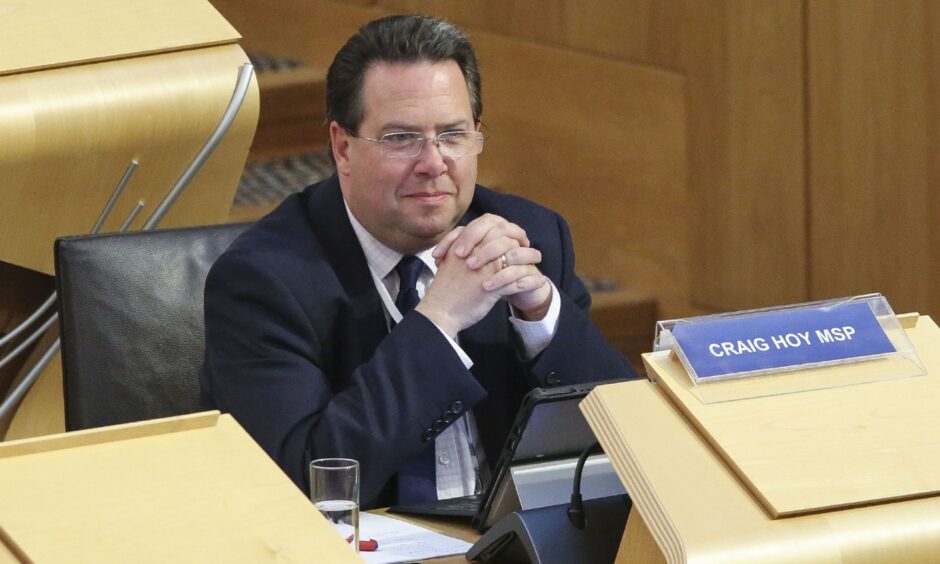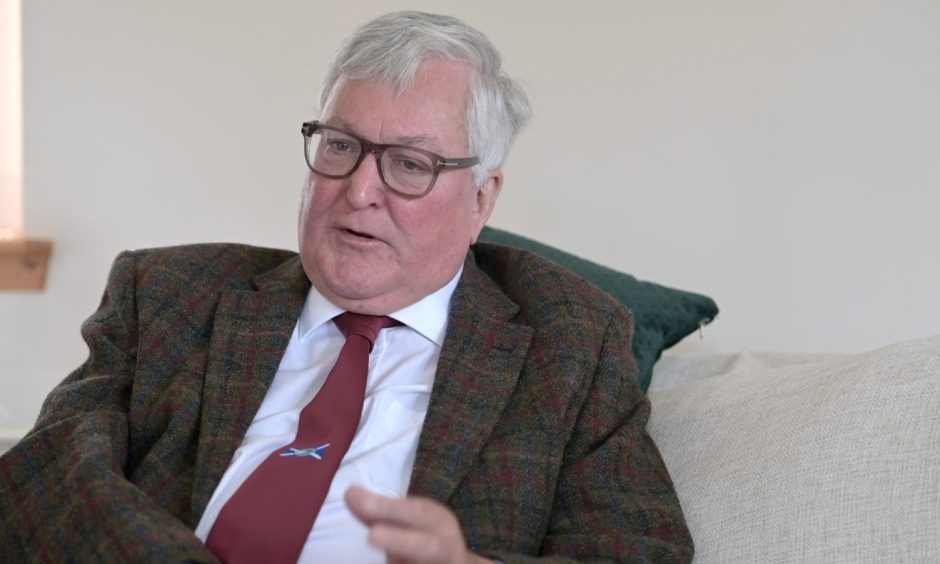Claims of government secrecy and evasion going beyond the Covid pandemic can be exposed today with fresh evidence and startling allegations from a former SNP minister.
We can reveal for the first time details of unrecorded meetings, ministers working to “dodge” scrutiny and incomplete records of contact with officials.
Further revelations also include:
- Veteran Highlands SNP minister Fergus Ewing left an “indiscreet” Holyrood group chat.
- A lack of recorded communication involving former health minister Jeane Freeman during an NHS Tayside health scandal.
One former government figure, who worked in Nicola Sturgeon’s administration, claims colleagues used personal email accounts and secret talks to escape their correspondence being released to the public under freedom of information laws.
FOI legislation, which is underpinned by the principle that people have a right to know about the activities of public officials, allows access to information such a ministers’ emails and communications.
There are loads of way to dodge FOI if you go out of your way to do it.
– former SNP minister.
The focus on records has intensified in recent days at the Scottish and UK Covid inquiries, which are trying to build a full picture of how decisions were made in the pandemic.
‘Easy to get rid of’
SNP insiders say use of private messaging apps such as WhatsApp skyrocketed during Covid as officials were forced to work remotely.
Sturgeon’s former ministerial colleague suggested WhatsApp became popular because “it’s easy to get rid of what you want to get rid of”.
But they added: “Even before WhatsApp, there were ways of communicating to make sure FOI didn’t catch it.
“The most obvious one was just to have a cup of coffee with someone without it being recorded you were even having the chat.
“There are loads of way to dodge FOI if you go out of your way to do it.
“WhatsApp, text or even email – you could do it on your private email.”
Asked whether they knew of SNP ministers using private emails to get around FOI scrutiny, they said: “I was aware that was happening.”
Government refuses to provide details
FOI legislation should apply to ministerial business whether it is conducted on government systems or private emails.
The Scottish Government said any suggestion that using private emails would evade FOI obligations is “simply not true”.
We asked it to provide examples of any FOI responses which include ministers’ private emails.
We also asked what procedures are in place to ensure any relevant information on private accounts is not withheld.
The Scottish Government said it was not able to provide that information and suggested a further FOI request should be submitted.
It was reported this week that communications sent between civil servants on Microsoft Teams, the most common software used by the Scottish Government, were set up to auto-delete within five days.
We can reveal records of attendance at key government meetings on Teams were also scrapped after seven days with no records being retained manually.
A freedom of information request found that for one of those summits, a meeting of the Scottish Government Resilience Room to discuss Storm Arwen, no record of participants exists.
NHS Tayside breast cancer probe
Meanwhile, our investigation shed further light on the wider culture of government record keeping.
We found there is no official record of any communications for six months between then-Health Secretary Jeane Freeman and those most closely involved in responding to an NHS Tayside breast cancer scandal.
This crisis, which was investigated in a DC Thomson documentary which you can watch here, became public in April 2019.
Nearly 200 breast cancer patients in Tayside were given lower doses of chemotherapy drugs by their doctors.
The consultants involved say they reduced the amount to lessen the harmful side effects of a treatment they argue was “unacceptably toxic” at the stronger dose.
The government now claims there was no correspondence between Freeman and the chief executive of NHS Tayside, Grant Archibald, for half a year after the scandal broke.
It also claims she made no contact with associate medical director Peter Stonebridge or Dr David Dunlop – who was at the time the government’s senior medical officer for oncology – between March 2019 and September 17 the same year.
The government told us: “The Scottish Government does not have the information you have asked for because Jeane Freeman, the Cabinet Secretary for Health and Sport, had not corresponded with the mentioned individuals during the given date range.”
NHS Tayside told us it has records of nine correspondences between Freeman and Archibald during those dates but none related to breast cancer treatment.
It stated there was no record of private messages being shared.
‘Dearth of evidence’
Critics say the “absolute dearth of evidence” of communications raises further questions about Scottish Government record keeping.
“The SNP are synonymous with a dark culture of secrecy and evasion,” said Scottish Conservative chairman Craig Hoy.
“Now there are reports of ministerial business being done on private emails.
“This would be unethical, obscures the truth and flouts basic information security.”
The UK Covid Inquiry’s legal team believes the majority of WhatsApp messages shared among Scottish Government officials during the pandemic have also not been kept.
‘Chatty and indiscreet’
Another former SNP minister, Fergus Ewing, explains how popular the message app became more widely at Holyrood.
He was asked to join a WhatsApp group when he took up a place on the Holyrood education committee in 2021.
He later decided to remove himself after being shocked by “very chatty and indiscreet” messages, including “forthright language” about opposition colleagues.
Ewing said: “I was asked to go onto this WhatsApp group supposedly just to get the details, like when does the meeting start or what’s on the agenda.
“Without maligning any of my colleagues, I felt that some of the things people were inclined to say on WhatsApp were incredibly indiscreet.
“I came to the conclusion that if I didn’t withdraw from this WhatsApp group, and if these messages found their way into the public domain, then I was one of the recipients and I would be tarnished by anything inappropriate that was revealed.”
Ewing said he can understand why those who lost loved ones during the pandemic may feel that any impropriety in record keeping is unacceptable.
However, the SNP veteran – who has repeatedly found himself at odds politically with Nicola Sturgeon – said he would be shocked if the Covid Inquiry shows anything other than her doing her best to deal with the crisis.
Who deleted what?
First Minister Humza Yousaf indicated none of his WhatsApp messages were deleted and will be handed over to the inquiry.
Ex-finance secretary Kate Forbes also said she did not erase any.
Nicola Sturgeon has refused to confirm or deny reports that she manually deleted messages.
The Scottish Government said its records management policy makes clear records shall be retained as long as they are required to support in its business requirements and legal obligations.
It added: “Scotland has the most open and far-reaching freedom of information legislation in the UK and the government remains committed to fulfilling our obligations under FOI law to ensure openness and transparency.”







Conversation